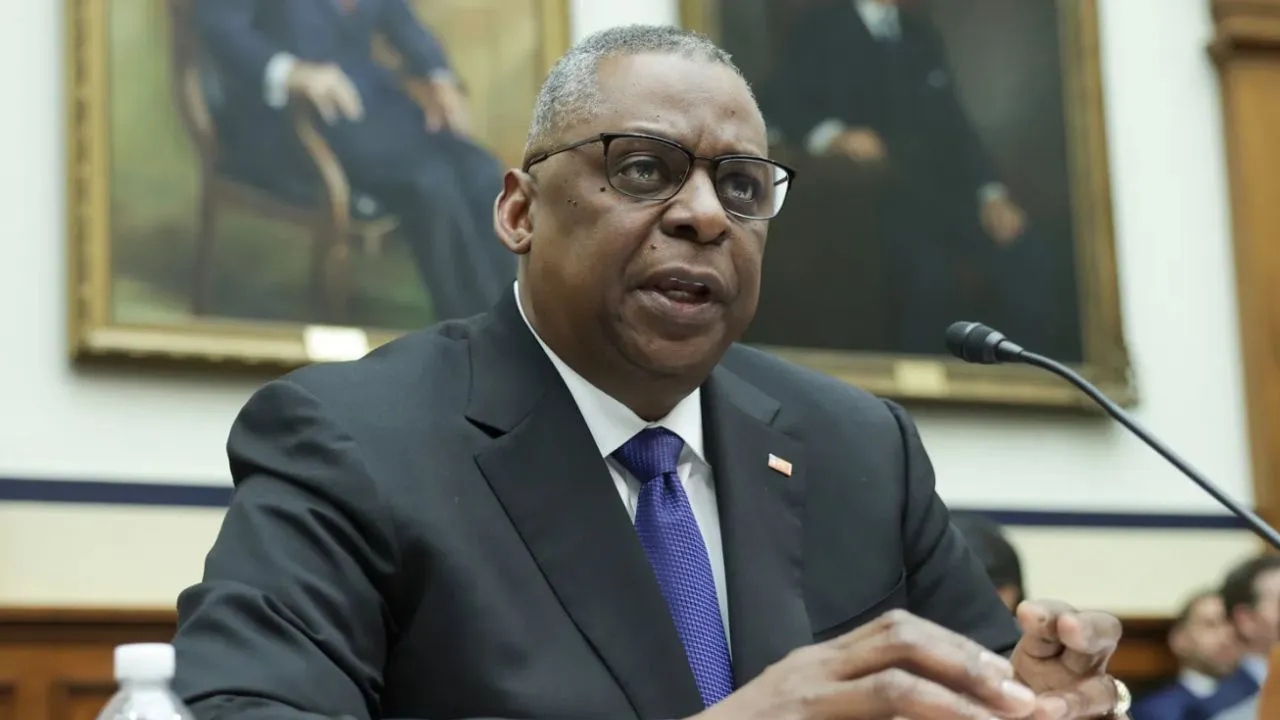Defense Secretary Lloyd Austin’s undisclosed hospitalization sparks concerns. Lack of transparency raises questions amid ongoing crises.
Summary
- Defense Secretary Lloyd Austin’s undisclosed hospitalization raises concerns.
- Acknowledging the lack of communication, Austin commits to enhanced transparency.
- The Pentagon refrains from disclosing specifics about Austin’s health condition.
- Sen. Tom Cotton calls for clarity amid reports of delayed White House notification.
- Austin, 70, is recovering at Walter Reed as the Defense Department manages ongoing crises.
- The incident prompts questions about disclosure practices for senior officials’ health issues.
Defense Secretary Lloyd Austin has recently acknowledged growing concerns surrounding his undisclosed hospitalization. The Pentagon released a statement on Saturday, acknowledging the lack of public information about Austin’s condition after complications from an elective procedure led to his hospitalization on January 1.
Austin expressed regret over the insufficient communication, stating, “I could have done a better job ensuring the public was appropriately informed. I commit to doing better.” Despite this acknowledgment, neither Austin nor the Pentagon has disclosed the nature of his illness.
The breach of norm regarding the prompt release of health information for senior government officials has sparked curiosity and criticism. Austin’s hospitalization came to light only on Friday, with NBC News reporting that he spent four days in the intensive care unit at Walter Reed National Military Medical Center. As of Saturday, he remains in the hospital.
In a statement, Austin mentioned, “I am very glad to be on the mend and look forward to returning to the Pentagon soon.” He expressed gratitude to the staff at Walter Reed for their care.
The delayed disclosure of Austin’s hospitalization deviates from the customary transparency observed during health-related issues involving high-ranking government officials. This practice has been particularly evident during the COVID-19 pandemic.

Notably, Austin did not indicate whether he would provide details about the nature of his illness. Instead, he emphasized, “But this is important to say: this was my medical procedure, and I take full responsibility for my decisions about disclosure.”
Senator Tom Cotton, a member of the Armed Services Committee, has called on Austin to address reports suggesting a delay in notifying the White House about his illness. Cotton highlighted the crucial role of the Secretary of Defense in the chain of command and the need for timely information, particularly in urgent decision-making scenarios.
NBC News reported that Austin had been unable to perform his duties since New Year’s Day, leaving Deputy Defense Secretary Kathleen Hicks in charge. Hicks, however, was reportedly on leave in Puerto Rico during this period, conducting routine business remotely.
The Defense Department, faced with ongoing crises in the Middle East and the Ukraine conflict, has yet to provide clarity on Austin’s condition. As questions linger, concerns grow about the potential impact on critical decision-making processes during this period of undisclosed illness.
In recent Pentagon actions, a drone strike was ordered on a militant in Baghdad, eliminating Mushtaq Jawad Kazim al-Jawari, also known as Abu-Taqwa. This individual had been actively involved in planning and executing attacks against American personnel.
While Austin recuperates, the incident prompts a reexamination of the transparency standards for disclosing health issues involving top government officials, raising broader questions about the balance between privacy and the public’s right to know.
More from Wisdom Imbibe:

